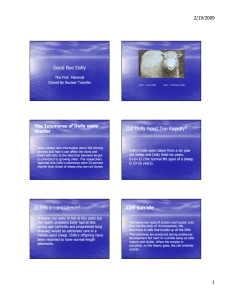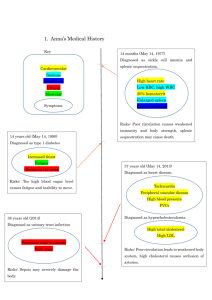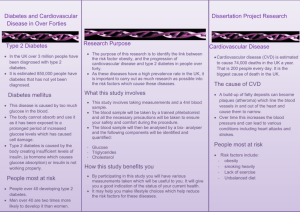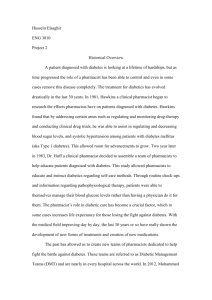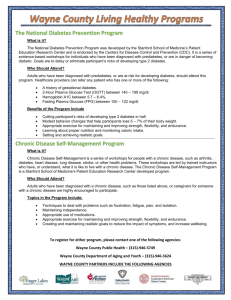e-Native Patient Engagement Story (DOC)
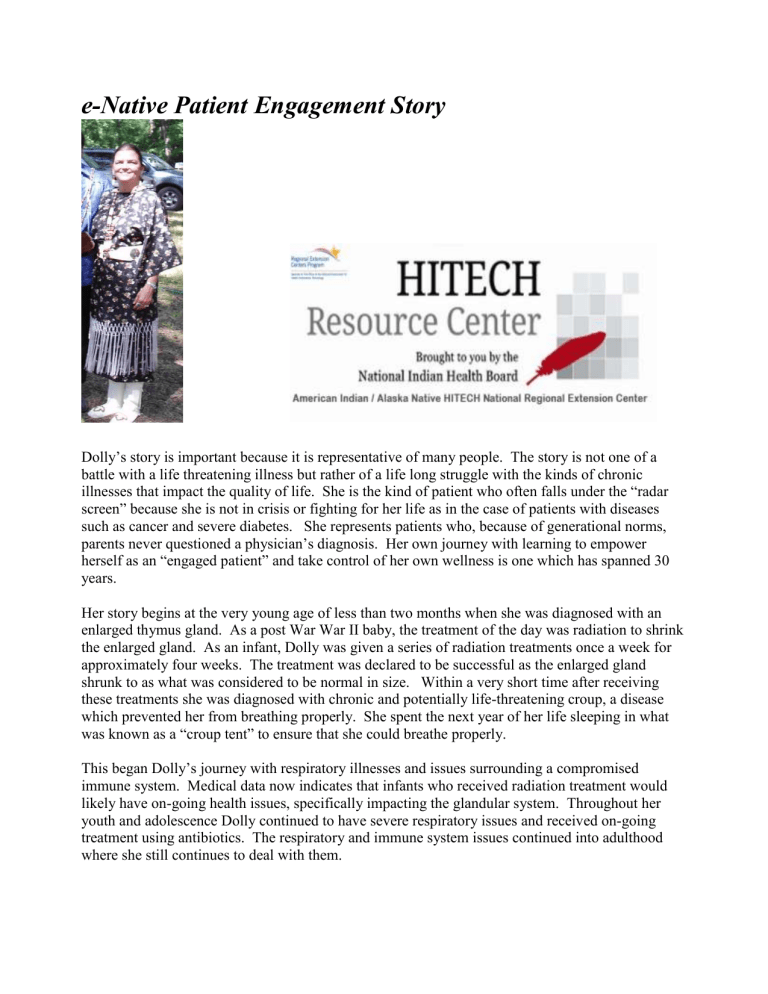
e-Native Patient Engagement Story
Dolly’s story is important because it is representative of many people. The story is not one of a battle with a life threatening illness but rather of a life long struggle with the kinds of chronic illnesses that impact the quality of life. She is the kind of patient who often falls under the “radar screen” because she is not in crisis or fighting for her life as in the case of patients with diseases such as cancer and severe diabetes. She represents patients who, because of generational norms, parents never questioned a physician’s diagnosis. Her own journey with learning to empower herself as an “engaged patient” and take control of her own wellness is one which has spanned 30 years.
Her story begins at the very young age of less than two months when she was diagnosed with an enlarged thymus gland. As a post War War II baby, the treatment of the day was radiation to shrink the enlarged gland. As an infant, Dolly was given a series of radiation treatments once a week for approximately four weeks. The treatment was declared to be successful as the enlarged gland shrunk to as what was considered to be normal in size. Within a very short time after receiving these treatments she was diagnosed with chronic and potentially life-threatening croup, a disease which prevented her from breathing properly. She spent the next year of her life sleeping in what was known as a “croup tent” to ensure that she could breathe properly.
This began Dolly’s journey with respiratory illnesses and issues surrounding a compromised immune system. Medical data now indicates that infants who received radiation treatment would likely have on-going health issues, specifically impacting the glandular system. Throughout her youth and adolescence Dolly continued to have severe respiratory issues and received on-going treatment using antibiotics. The respiratory and immune system issues continued into adulthood where she still continues to deal with them.
While in her twenties, Dolly received what was to be the first in a long history of mis-diagnoses when she was diagnosed with diabetes and put on an oral medication. After a year of taking the medication and following a strict diet, she began to question the validity of the diagnosis. At the time, Internet access was not prevalent and going to the library and wading through articles relating to diabetes was a labor intensive process. She persisted in questioning the diagnosis because it did not make sense to her. No one in her immediate family has diabetes. Her Father (Cherokee Tribe) had died at the age of 45 and both of his parents were deceased many years before she was born.
She had no information about their medical backgrounds, but still it did not seem likely to her that she was diabetic. The medical literature that she could access, about diabetes, just did not seem to address her symptoms. She decided to seek the opinion of a physician specializing in thyroid disorders, which to her layman’s eyes seemed to better fit the symptom’s she was experiencing.
After tests were done, she was diagnosed with Hashimoto’s Disease and put on the appropriate medication. She was taken off the medication for diabetes and to date, has never been diagnosed with diabetes.
Dolly continued to have on-going immune system issues. After experiencing increasing episodes of health problems in 2002, she became a more actively engaged patient, seeking answers to her own health questions. Due to elevated liver enzymes, she was diagnosed with Hepatitis C, a diagnosis she immediately questioned. This diagnosis also proved to be incorrect as she went through approximately two years of close medical scrutiny by a leading authority in the field, only to be told that she did not have liver disease of any kind.
Declining health, including on-going immune system issues, and access to some of the leading medical facilities in the U.S., once again prompted her to take a proactive role in working with her healthcare providers to understand her health problems and find appropriate treatment protocols.
After undergoing a battery of tests, and seeing numerous healthcare specialists; being diagnosed with everything from a possible brain tumor to rheumatoid arthritis, each of which turned out to be incorrect, she still had no answers. Her health problems and related impacts on her daily family, work and personal life added more stress and negative impacts to a declining health status.
By this point, Dolly was overwhelmed because she was beginning to perceive that some people might believe her to be a hypochondriac! She persisted in pursuing answers through her own
Internet and medical journal research, all of which were encouraged by her primary care physician.
She developed a close bond with her provider in Maryland, through a teamwork process of medical record reviews, maintaining a journal of symptoms and sharing general health information resources. It took a couple of more years and a battery of tests before she was finally diagnosed with Fibromyalgia, which explained the wide-spread pain and other symptoms she had been experiencing for years. Today, Dolly is committed to being an advocate for patient engagement in
Tribal communities throughout the U.S. while enjoying the sun-filled life in New Mexico, the Land of Enchantment.



